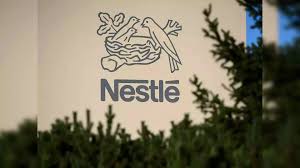Nestle India shares are expected to attract significant attention on Tuesday following reports that the company is contemplating marginal price increases. This move comes as a response to rising input costs, particularly for key commodities such as coffee, cocoa, and edible oil. According to a senior executive who spoke on Monday, the company aims to implement these price adjustments strategically to help offset the impact of inflation on its production expenses. Despite the potential price hikes, Nestle India remains focused on maintaining its sales momentum and ensuring that demand for its products remains stable in the face of increasing costs.
Corporate India faced mounting pressure on profits during the October-December quarter, primarily due to the dual impact of inflation and elevated commodity prices. Rising inflation dampened consumer spending, particularly in large urban centers, where households became more cautious with their expenditures. At the same time, businesses grappled with increased costs for essential raw materials.

Addressing this challenge, Nestle India Managing Director Suresh Narayanan stated in an interview with Reuters that the company would consider price adjustments only when absolutely necessary. He emphasized that any decision to raise prices would be made selectively and carefully, ensuring it is done in situations where cost pressures make it unavoidable. This approach reflects Nestle India’s efforts to balance the need to manage rising production expenses while remaining sensitive to consumer affordability and market dynamics.
Suresh Narayanan, Managing Director of Nestle India, emphasized that the company will aim to keep any potential price increases for its products, including its popular Nescafe instant coffee, as minimal as possible. He acknowledged the delicate balance between managing rising input costs and maintaining consumer demand. Narayanan further explained that frequent or significant price hikes are not a sustainable solution for the industry, as they can negatively affect volume growth by discouraging consumer purchases. Instead, the company plans to adopt a measured approach, focusing on maintaining affordability while navigating the challenges posed by inflation and higher commodity prices.
India’s recently announced plan to reduce personal income tax rates in the fiscal year 2026 is anticipated to increase disposable income for individuals, potentially leading to a rise in overall consumer spending. This policy move is aimed at stimulating economic activity by giving consumers more financial flexibility, which could, in turn, drive higher consumption across various sectors.
Despite broader economic pressures, affluent consumers continue to demonstrate strong spending habits, particularly on hyperfast delivery services. Platforms such as Swiggy’s Instamart, Zomato’s Blinkit, and Zepto have seen notable growth, especially in large urban centers, as convenience and speed drive demand for quick commerce. However, Nestle India Managing Director Suresh Narayanan pointed out that while these platforms are successfully expanding their market share, their long-term viability will depend on their ability to achieve consistent profitability. Without sustainable financial performance, the rapid growth of these services could face significant challenges in the future.
In its latest financial report released last month, Nestle India posted quarterly profits that fell short of market expectations. The company’s performance was affected by two key factors: a decline in consumer spending in major urban centers and the impact of higher product prices. Weaker demand in large cities suggested that inflationary pressures and rising living costs may have led consumers to become more cautious with their spending. Additionally, the company’s efforts to offset increased input costs through price adjustments likely contributed to the dip in overall demand, ultimately affecting profitability for the quarter.
According to data from Trendlyne, the average target price for Nestle India’s stock has been set at ₹2,485. This projection indicates a potential upside of approximately 12% compared to the stock’s current market value. The analysis reflects the views of 36 market experts who have evaluated the stock’s performance and future prospects. Based on their assessments, the consensus recommendation for the stock is categorized as a ‘Hold.’ This suggests that analysts generally believe the stock is likely to maintain its current position in the near term, with no strong indication to either buy or sell at this stage.
On Monday, Nestle India’s shares closed at ₹2,220 on the Bombay Stock Exchange (BSE), marking a modest gain of 0.24% for the day. This positive movement came despite broader market weakness, as the benchmark Sensex experienced a decline of 1.14% during the same trading session.
Over a longer time frame, the stock has shown mixed performance. Over the past six months, Nestle India’s share price has declined by 12%, reflecting challenges such as inflationary pressures and subdued consumer demand in key markets. However, on a two-year basis, the stock has delivered a notable gain of 19%, indicating resilience and long-term growth potential despite short-term fluctuations.
As of the latest update, the company’s market capitalization stands at ₹2,14,071 crore, underscoring its strong presence and significant value within India’s fast-moving consumer goods (FMCG) sector.

